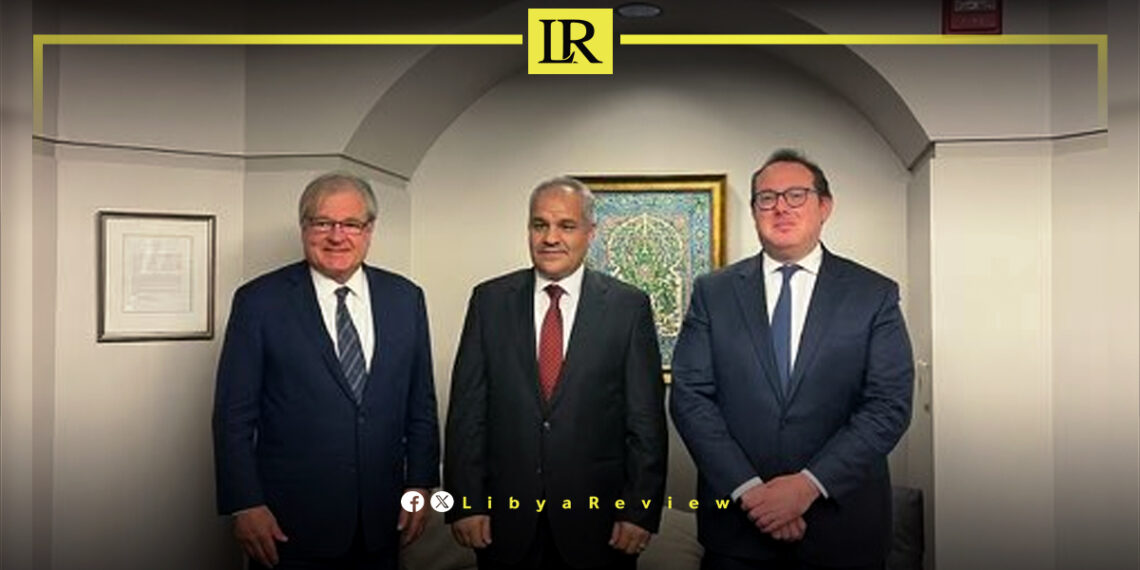In a significant diplomatic meeting held yesterday, U.S. Special Envoy Richard Norland and Deputy Assistant Secretary of State (DAS) Harris welcomed Central Bank of Libya (CBL) Governor Naji Issa at the State Department. The discussions focused on the U.S. commitment to support Libya’s economic reforms, particularly those aimed at increasing governance and transparency within the CBL.
During the meeting, both parties acknowledged the recent appointment of a new CBL board of directors, a crucial step toward revitalizing the country’s financial framework. The U.S. officials expressed their support for the bank’s ongoing reform efforts, emphasizing the importance of enhanced governance to foster economic stability and growth in Libya.
“The establishment of a competent and accountable CBL is vital for the future of Libya’s economy,” said Special Envoy Norland. “We believe that a transparent financial institution will not only strengthen public trust but also attract foreign investment.”
The U.S. remains committed to partnering with Libya as it navigates its complex economic landscape. This collaboration highlights a mutual interest in ensuring a prosperous future for Libya through improved financial governance.
As Libya continues to seek stability following years of conflict, international support from the U.S. and other partners will play a crucial role in these reform efforts. The emphasis on governance and transparency reflects a broader strategy aimed at restoring confidence in Libya’s financial institutions.
Libya has been in chaos since a NATO-backed uprising toppled longtime leader Muammar Gaddafi in 2011. The county has for years been split between rival administrations.
Libya’s economy, heavily reliant on oil, has suffered due to the ongoing conflict. The instability has led to fluctuations in oil production and prices, impacting the global oil market and Libya’s economy.
The conflict has led to a significant humanitarian crisis in Libya, with thousands of people killed, and many more displaced. Migrants and refugees using Libya as a transit point to Europe have also faced dire conditions.
The planned elections for December 2021 were delayed due to disagreements over election laws and the eligibility of certain candidates. This delay has raised concerns about the feasibility of a peaceful political transition.
Despite the ceasefire, security remains a significant concern with sporadic fighting and the presence of mercenaries and foreign fighters. The unification of the military and the removal of foreign forces are crucial challenges.


